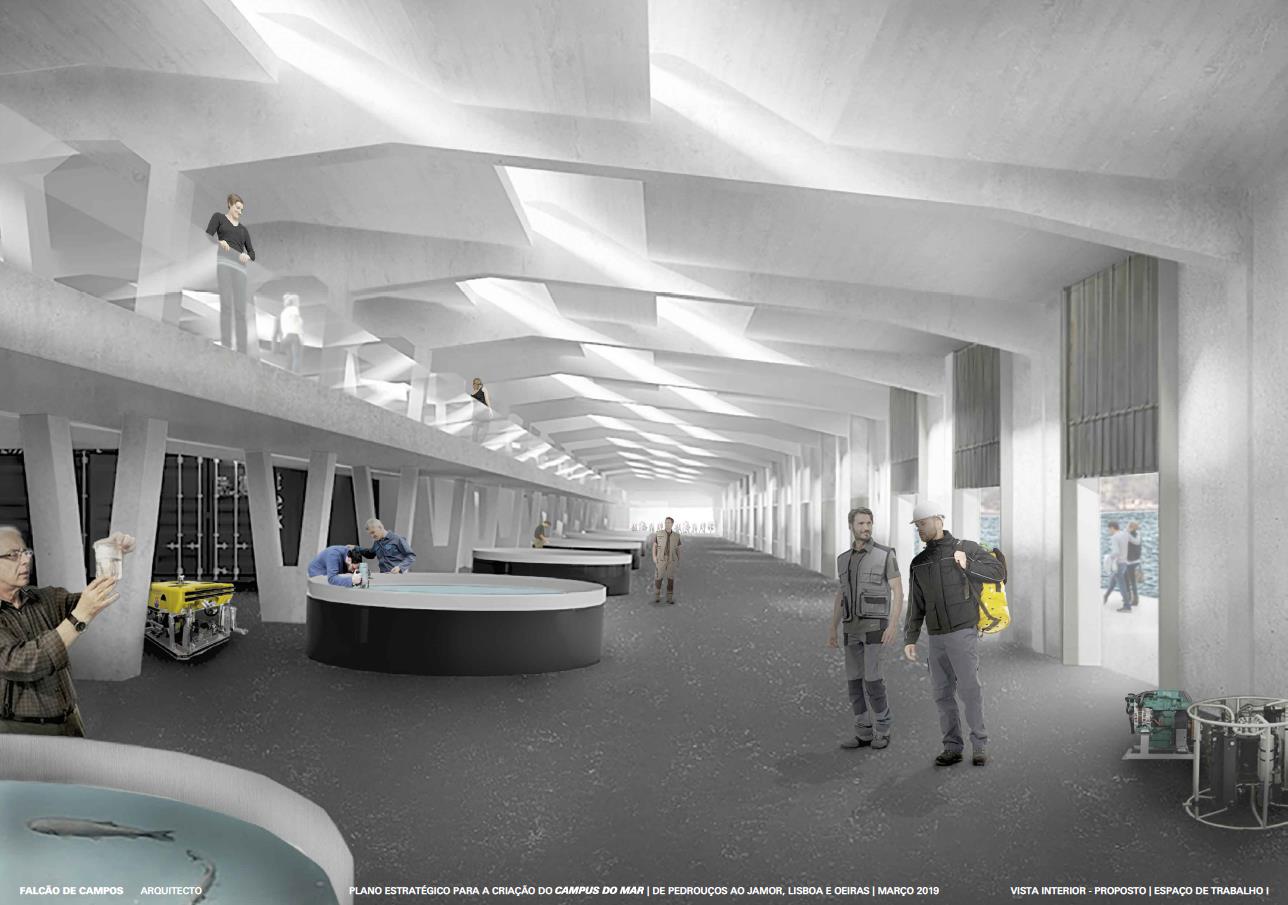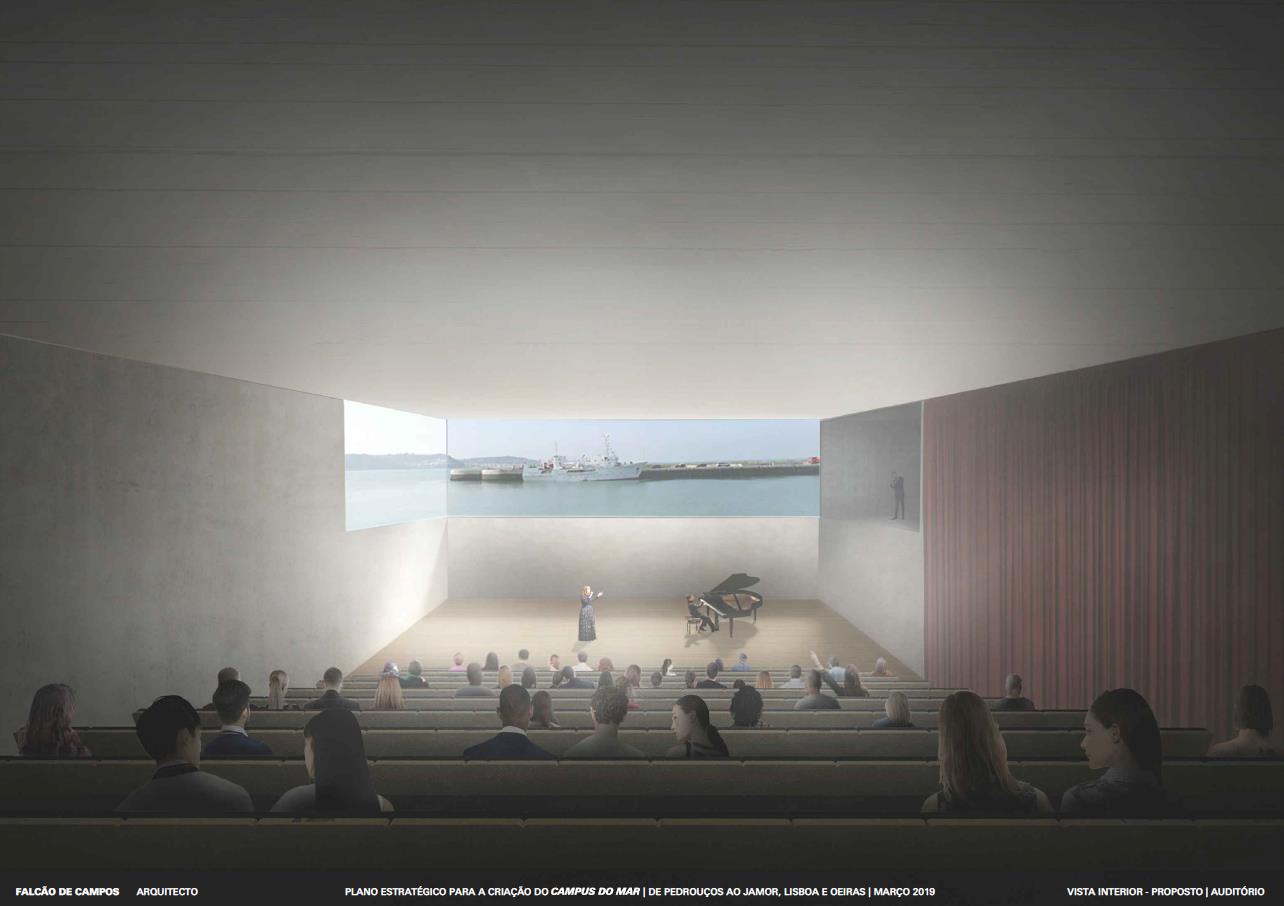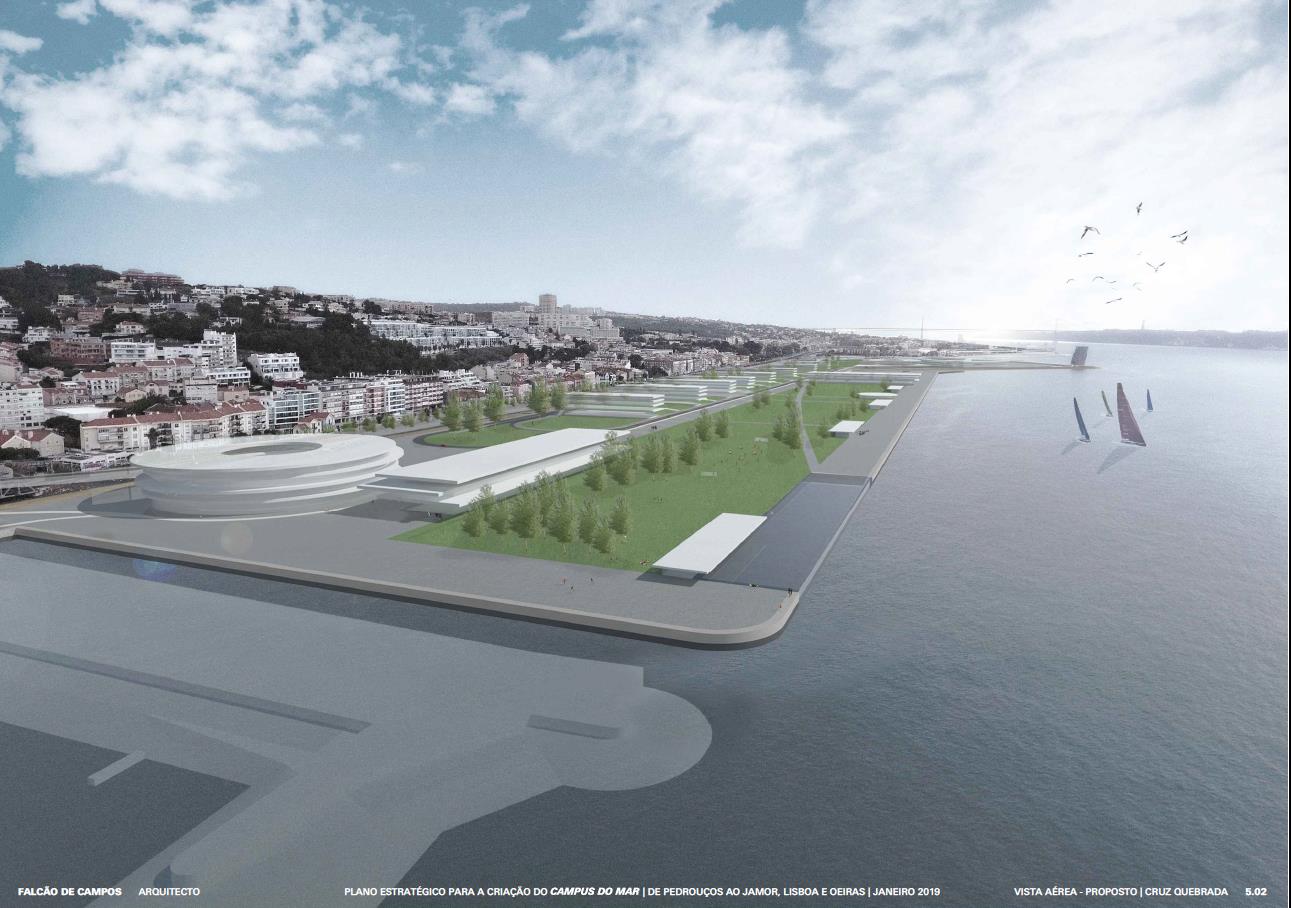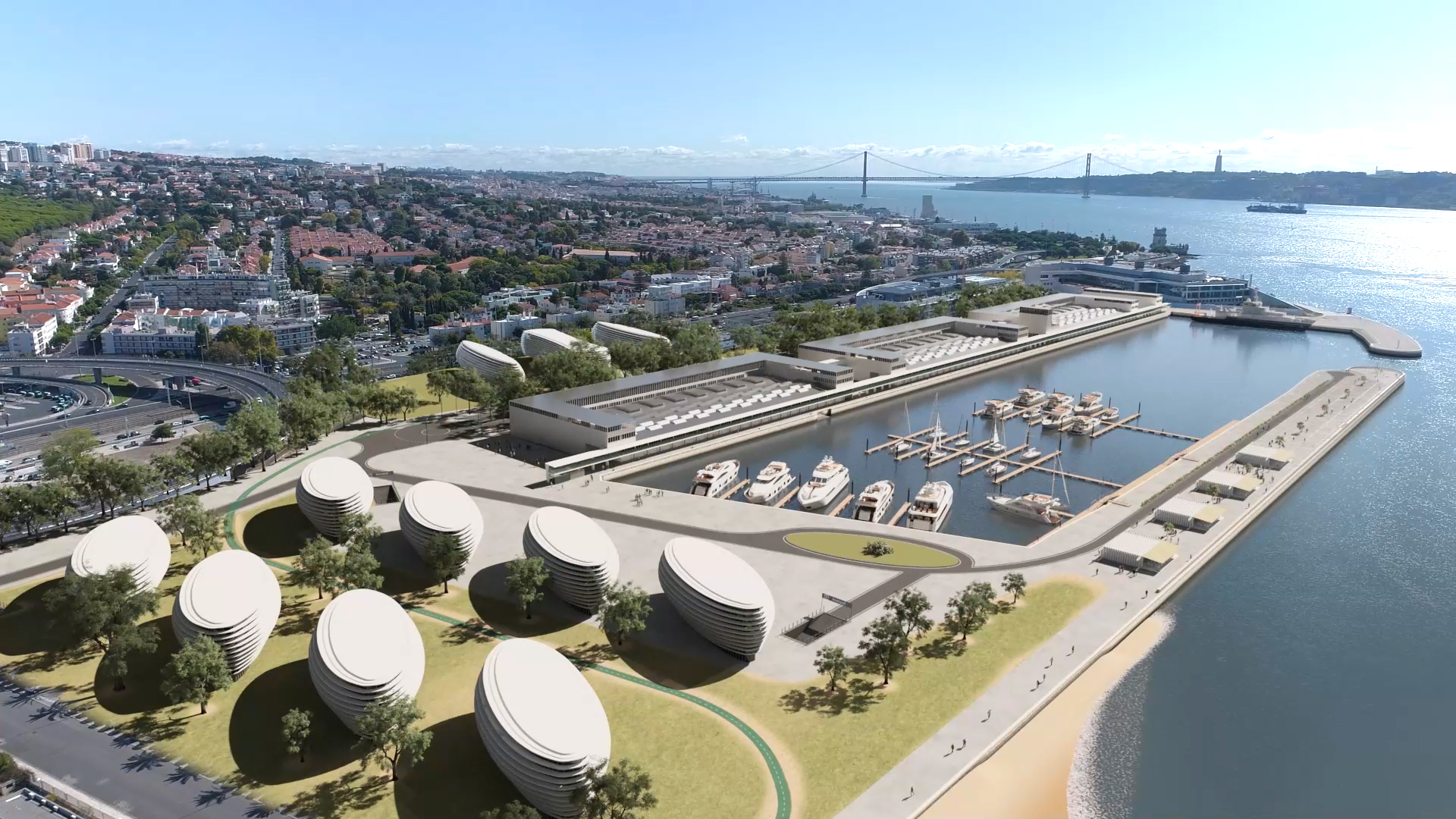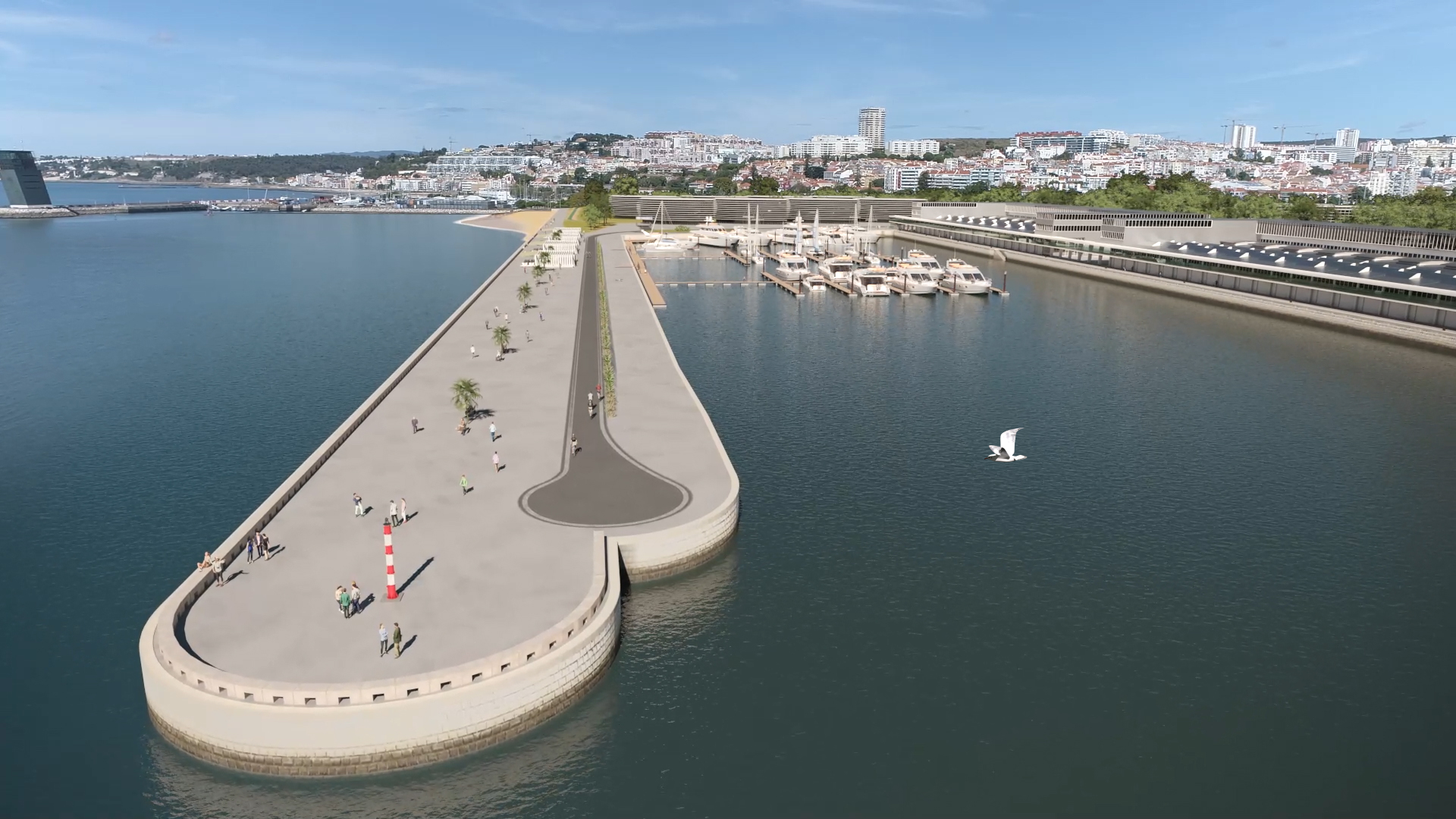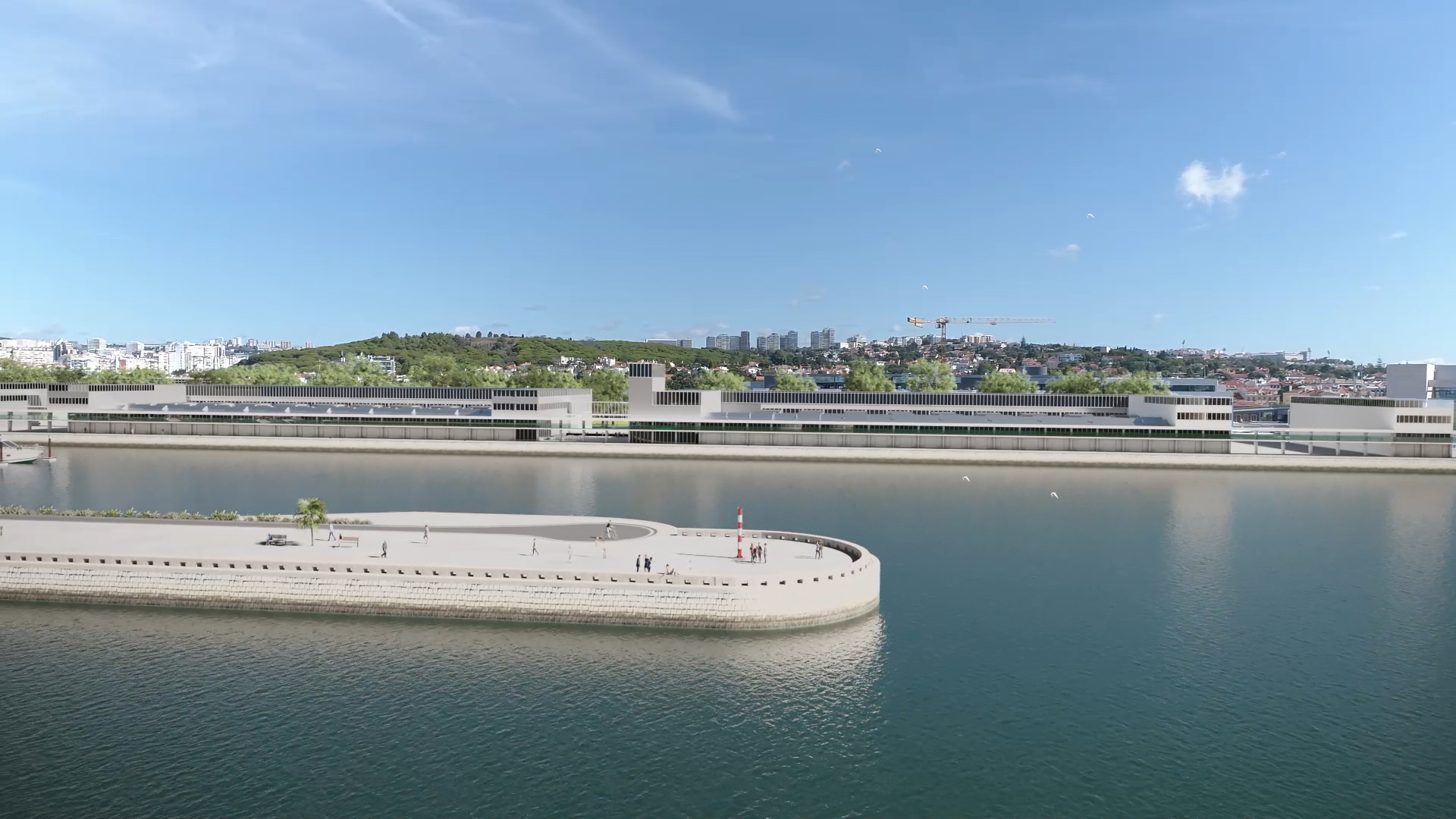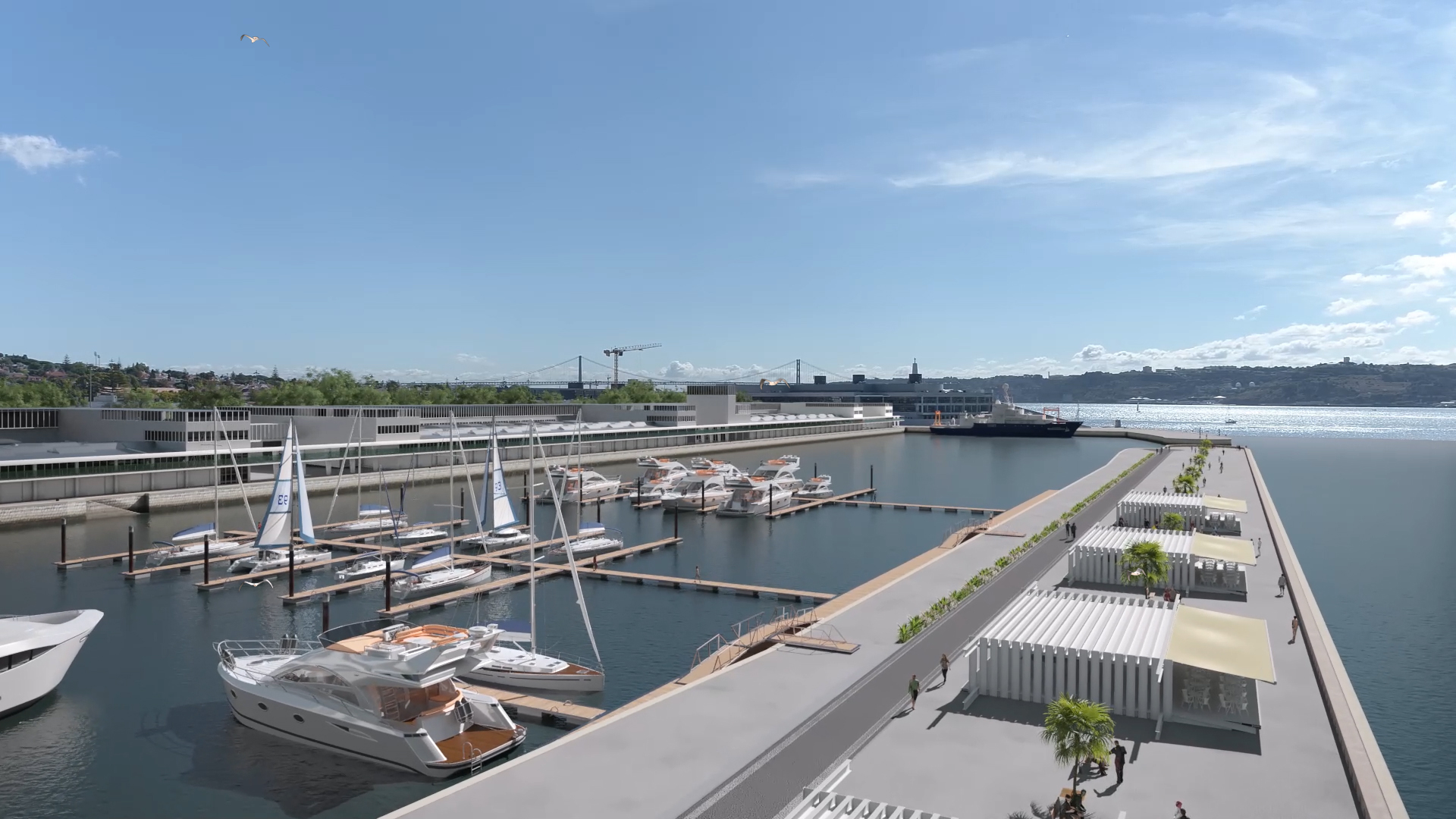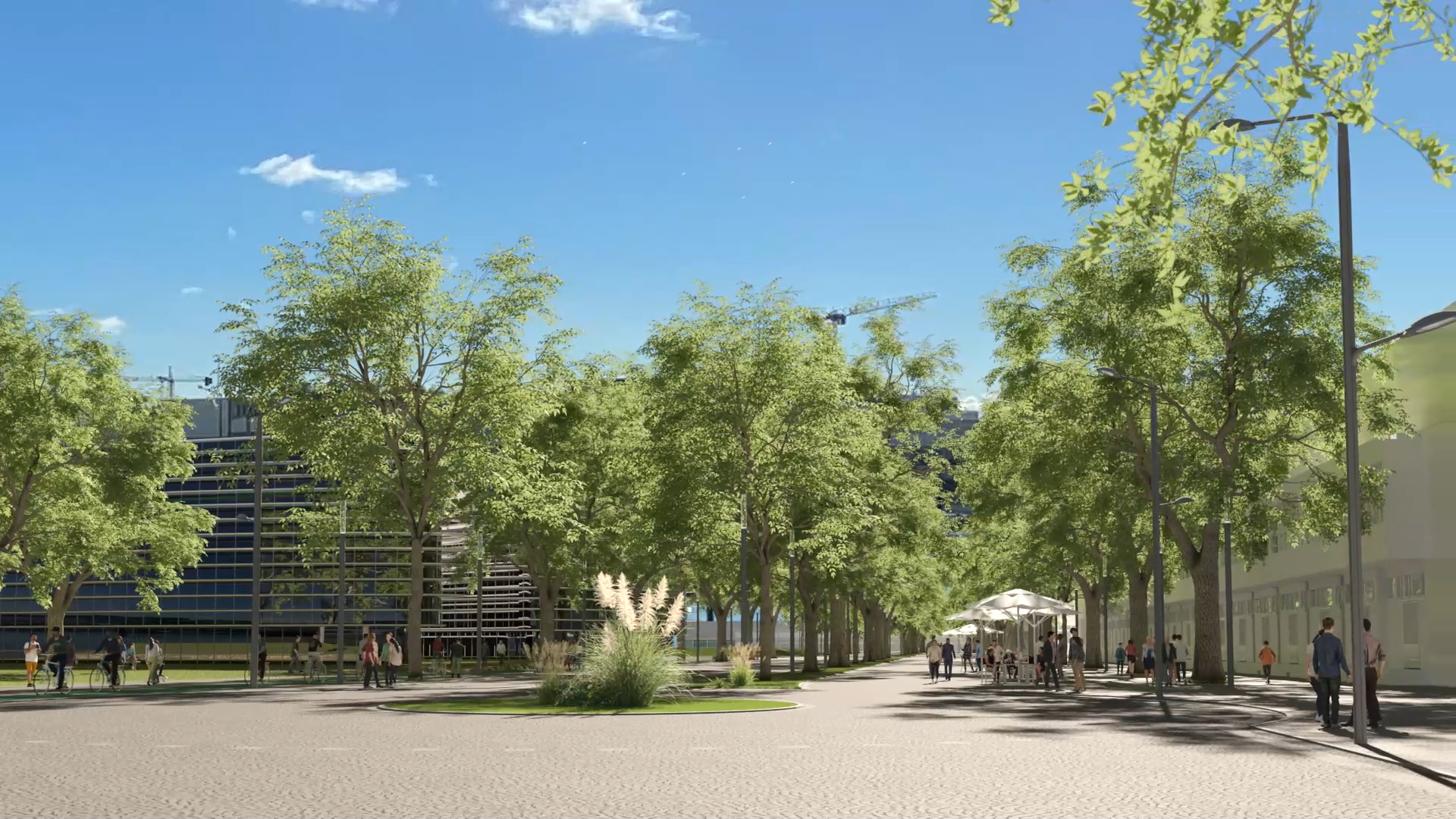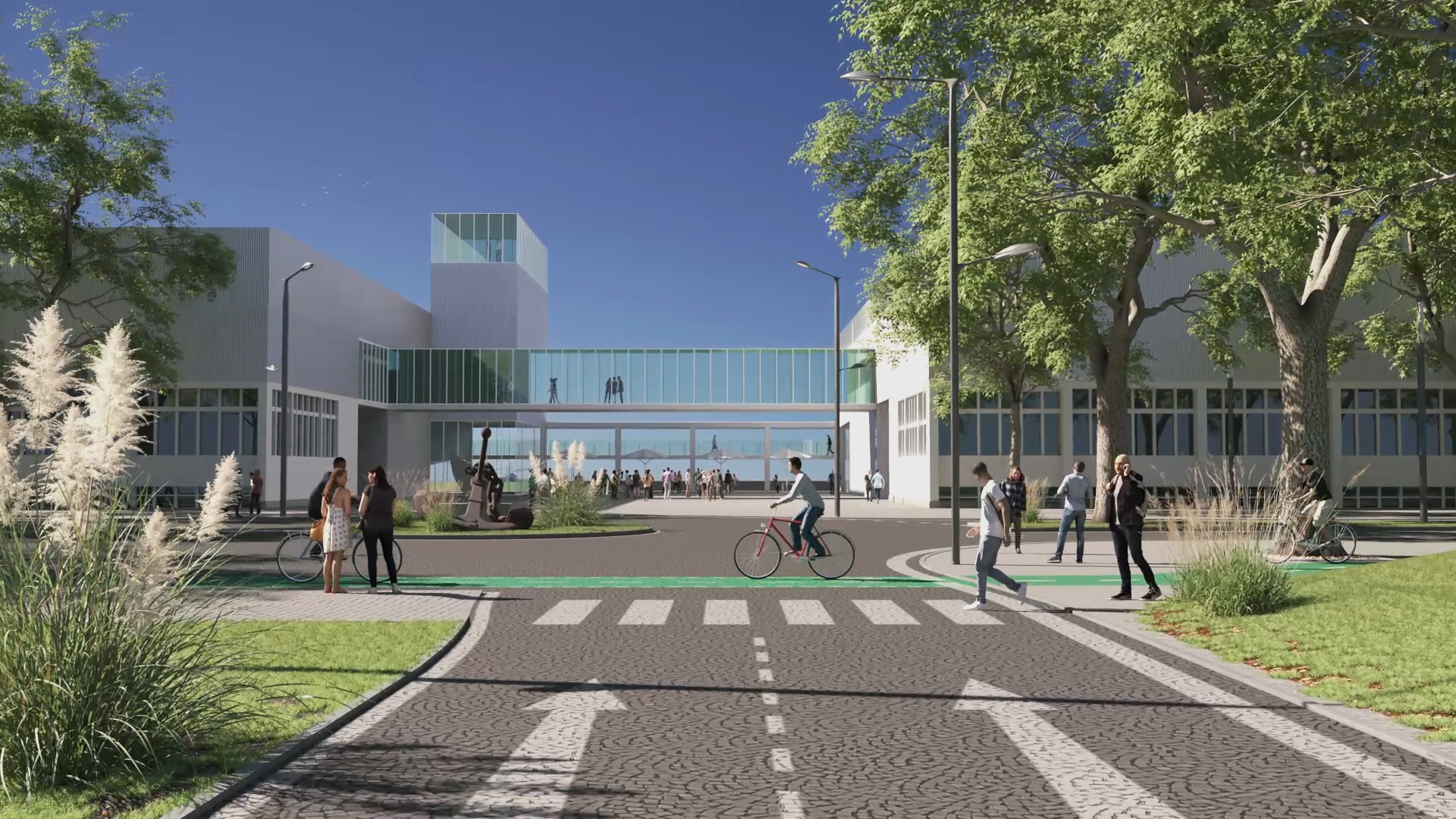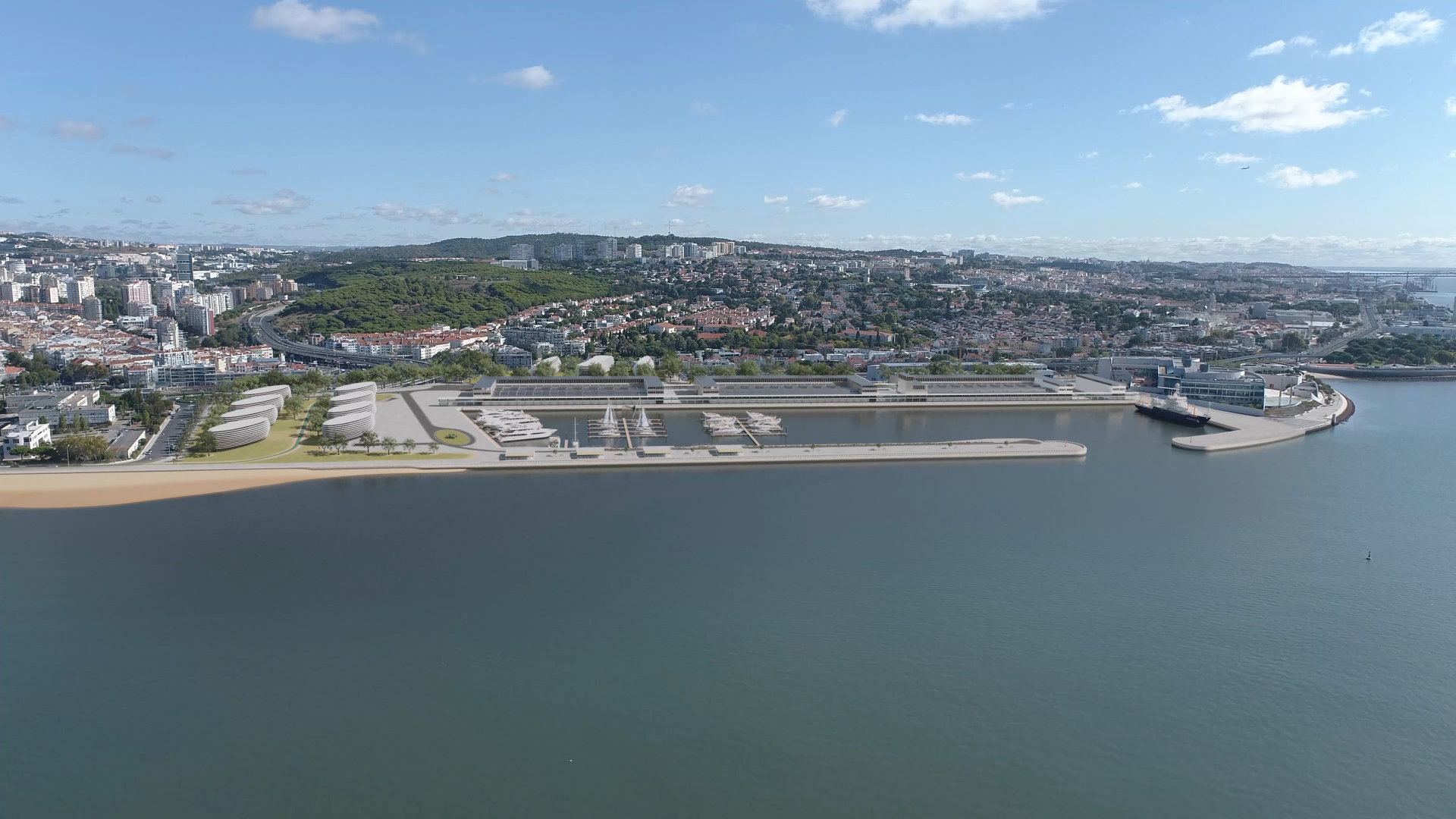Este website utiliza cookies. Ao continuar a navegação está a aceitar a sua utilização.
Caso pretenda saber mais, consulte a nossa política de privacidade.
Port of Lisbon, Lisbon Municipality and Champalimaud Foundation are implementing the OCEAN CAMPUS project.
With the Ocean Campus project, a space for development of innovation and entrepreneurship is born, bringing together, in the jurisdiction of the Port of Lisbon, a Cluster of activities linked to the blue economy and based on four pillars: Knowledge, Economy, Research and Quality of Life. A space open to all citizens that will prioritize environmental sustainability and smooth mobility solutions.
This plan is kicking off in the areas surrounding the Pedrouços Dock in Lisbon, with the installation of two reference buildings, one associated to the Champalimaud Foundation and the other one to the Lisbon City Council, involving an initial investment of around 70 million euros.
The aim of the Ocean Campus is to requalify the western riverfront, covering a total of 64 hectares at the municipalities of Lisbon and Oeiras, with an expected investment of around 300 million euros, mostly private, with the creation of environmentally sustainable multifunctional spaces, teaching and training units, technological development, innovation and qualified research, examples of which are today the partnerships with the municipality of Lisbon and the Champalimaud Foundation.
Sobre o Sustentável 2030
The maritime-based economy and blue growth are inevitably linked to facilities and infrastructures located on land, which should preferably be located in land-water interface areas, such as ports. Therefore, ports are key players in the blue economy, though often imperceptibly.
The Ocean Campus Strategic Plan, from Pedrouços to Jamor, aims at positioning the port of Lisbon as a promoter of blue growth in Portugal, implementing a true cluster of the blue economy through the creation of an environment favourable to the development of synergies and shared infrastructures.
This project was developed by the Architect Falcão de Campos in close connection with APL, S. A. and the municipalities of Lisbon and Oeiras. It will gather in the same place different blue economy stakeholders in an innovative way, providing the establishment of a network of research, teaching and technological development units, and, at the same time, will rehabilitate an area of about 64 ha, along the riverfront area between Pedrouços and Cruz Quebrada.
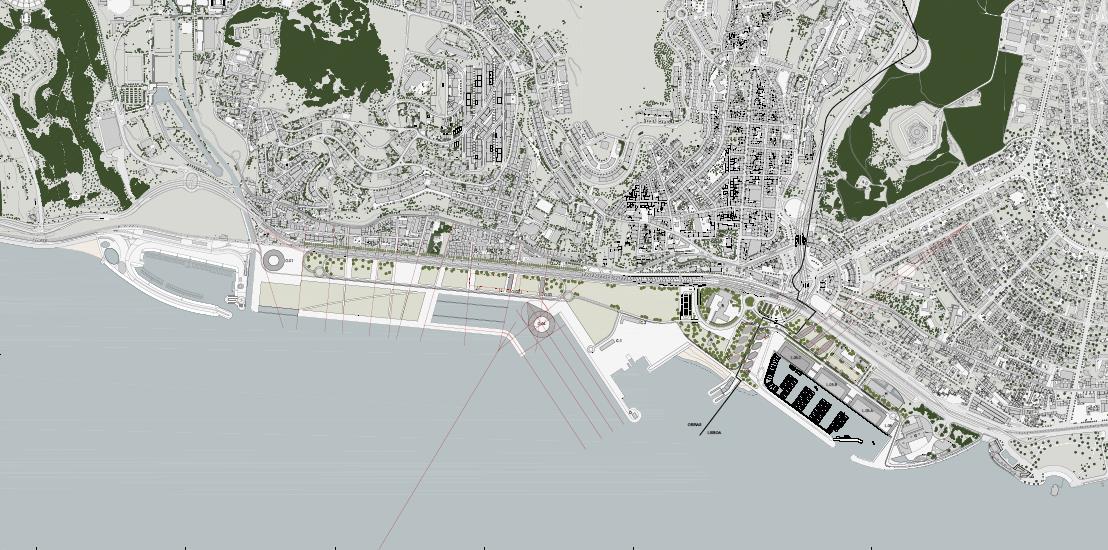
Ocean Campus will be a place of international reference in the marine sciences and blue economy fields, and at the same time will recover the connection between land and sea, returning this place to citizens.
According to the project, a major part of the sea cluster, with public institutions dedicated to the sea-based activities, research laboratories, start-ups, accommodation for researchers and a marina, including mooring stations for research ships, will be established in Doca de Pedrouços, a partially unoccupied port embankment, and its surroundings.
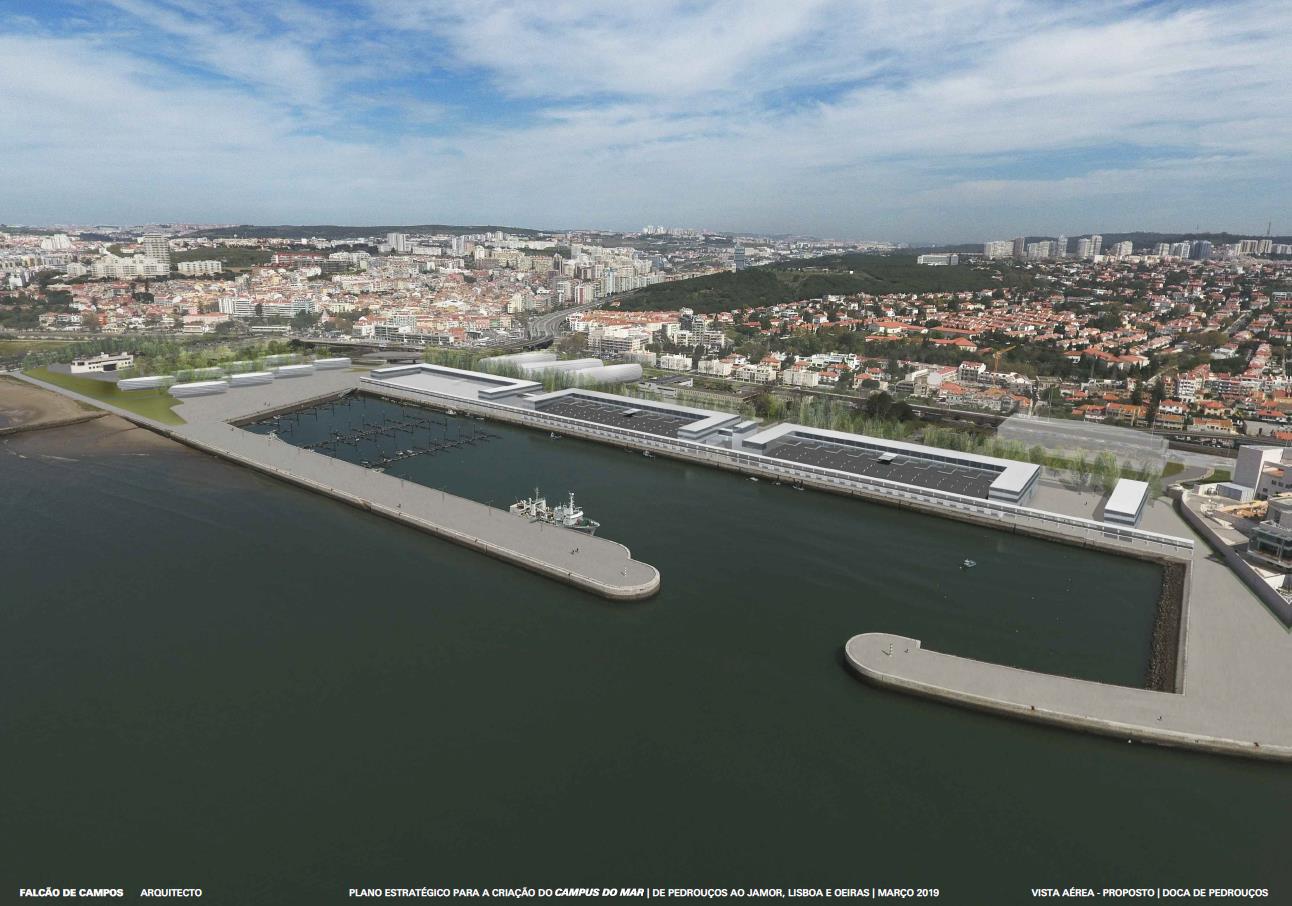
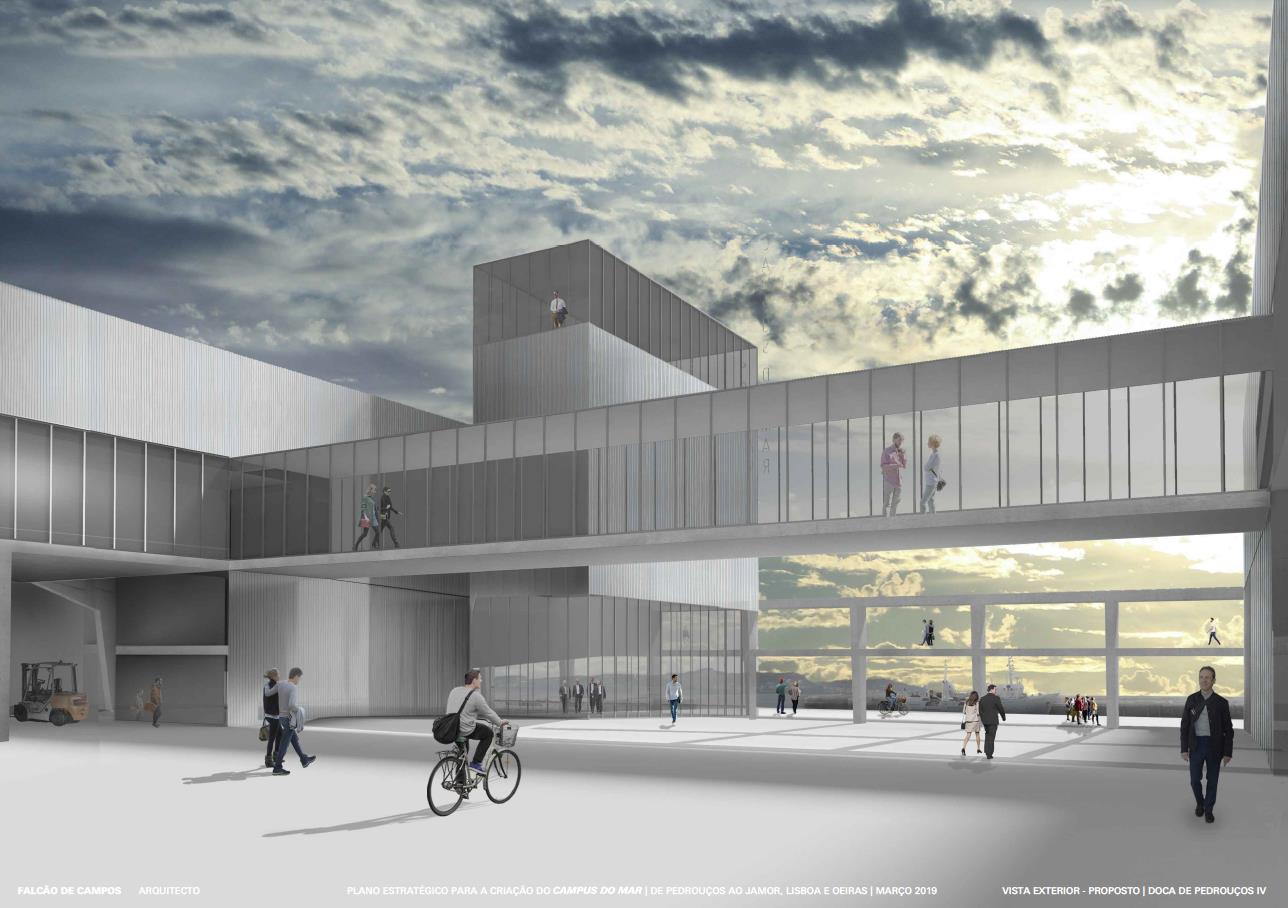
To the west, in the area of the Algés embankment, where port safety facilities and ships are located, an educational campus linked to the investigation of the sea issues - the Blue Business School – will be built. In the area currently known as Algés Maritime Promenade, which extends to the Jamor River, the intention is to create public spaces that complement and requalify the Dafundo and Cruz Quebrada areas. Next to Jamor, a remarkable building for a hotel unit will stand out, reinforcing the support to the existing sports area in Jamor Urban Park, next to which the new Marina do Jamor will be built in association with the requalification of Cruz Quebrada beach.
